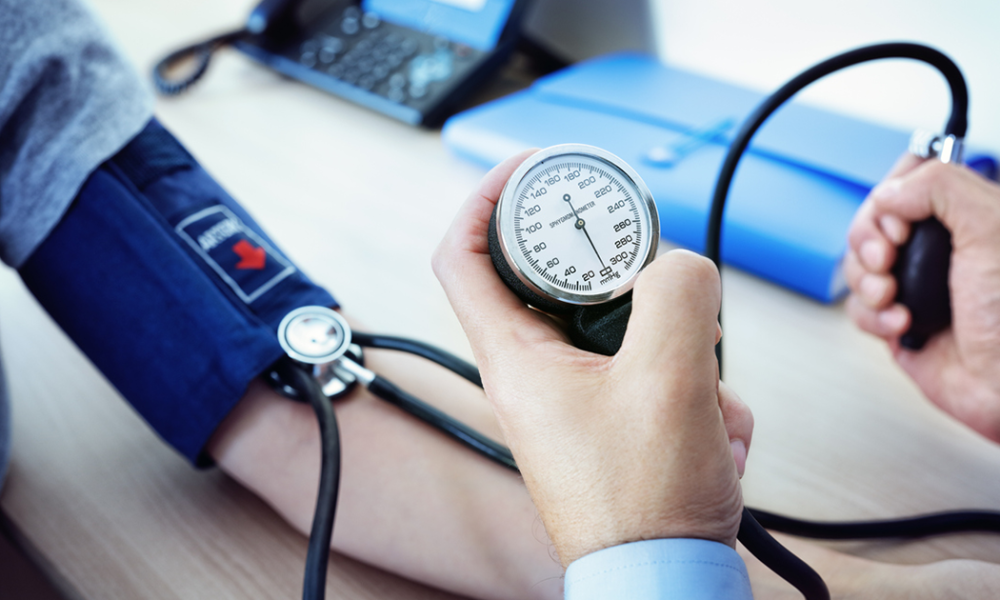Blood pressure is the pressure exerted by the body’s blood against the walls of the arteries. We are talking about a pressure that is essential for the blood to circulate through the blood vessels so that it can provide oxygen and nutrients to all the body’s organs for them to function properly.
However, sometimes there are alterations in blood pressure, which can go up, producing arterial hypertension, or go down, producing arterial hypotension.
Although high blood pressure is best known for the risks it poses when it comes to cardiovascular disease, the truth is that hypotension also poses a risk if left untreated.
Main causes
Various reasons can cause low blood pressure and the main ones are:
Orthostatic Hypotension
This type of hypotension occurs when we change our body position, such as when sitting or lying down, when we stand up. This change causes blood pressure to drop for a few seconds until the heart adjusts it again. Elderly or pregnant people are more exposed to this type of ailment. Those who are dehydrated or have just eaten are also more concerned, especially in cases where it is a question of large meals since the blood flow is concentrated in the digestive system and the heart pumps much more relaxed.
Vasovagal Syncope (Fainting)

It occurs in situations where the parasympathetic nervous system is stimulated. For example, when faced with strong emotions (anxiety, fear or even joy suppose an overexcitement that can lead to fainting). Heat and poor ventilation, or even intense pain (since our brain in these cases very often disconnects to avoid the sensation of pain) can also be causes. A fast maintenance over time (when we do not eat our body runs out of sugar reserves to function properly, sometimes leading to fainting).
Consumption of Medicines or Toxins
The most frequent cause of hypotension in adults is the excessive use of diuretics, to treat arterial hypertension, and other medications that can also lower blood pressure such as antidepressants, anxiolytics, and pain relievers, among others. Regarding drugs, they are usually exempt since their effect produces arterial hypertension in most cases, except alcohol, which does lower blood pressure.
Chronic Hypotension
Although rare, it causes weakness, fatigue, and drowsiness in the affected person. It is not a disease in itself but a symptom of other pathologies that low blood pressure produces, such as anemia or diabetes.
Hypotensive Shock
Sudden drops in blood pressure also sometimes occur due to heart failure, sepsis, or blood loss from bleeding. What causes the blood supply to vital organs to be obstructed.
Symptoms
The most common symptoms of low blood pressure are dizziness or lightheadedness, fainting (syncope), poor concentration, blurred vision, nausea, cold or paleness, clammy skin, rapid and shallow breathing, fatigue, depression, and thirst.
Treatment and Recommendations

It should be noted that what is recommended to do in cases where arterial hypotension occurs is:
- Lay the person on the floor with their legs raised at about 45 degrees from the ground for a few minutes to help the brain’s blood supply and its oxygenation more easily.
- Loosen the person’s clothing to facilitate breathing and leave room so that he does not become overwhelmed.
- If he is conscious, he can be given a sugary or caffeinated drink, as well as some candy or candy, to increase his blood glucose. If you are unconscious, you should avoid the intake of food or liquids and call the assistance service.
- If there is a risk of vomiting, the person should be placed on the side so that they do not choke.
However, although a drop in blood pressure does not have to involve serious complications, it is important to visit the family doctor if drops occur frequently. This is because they could be a symptom of some other condition or a harmful habit such as poor diet or excessive medication, as we have already discussed previously.


